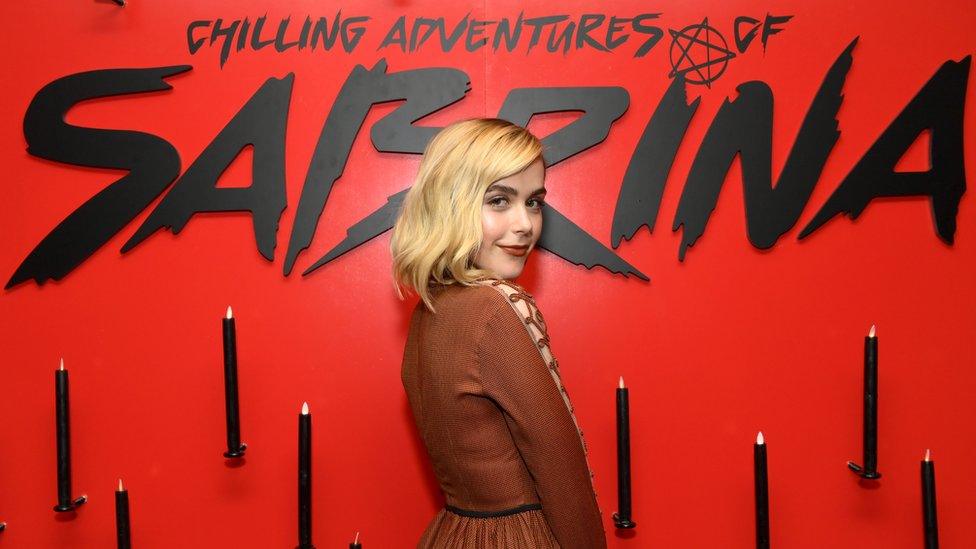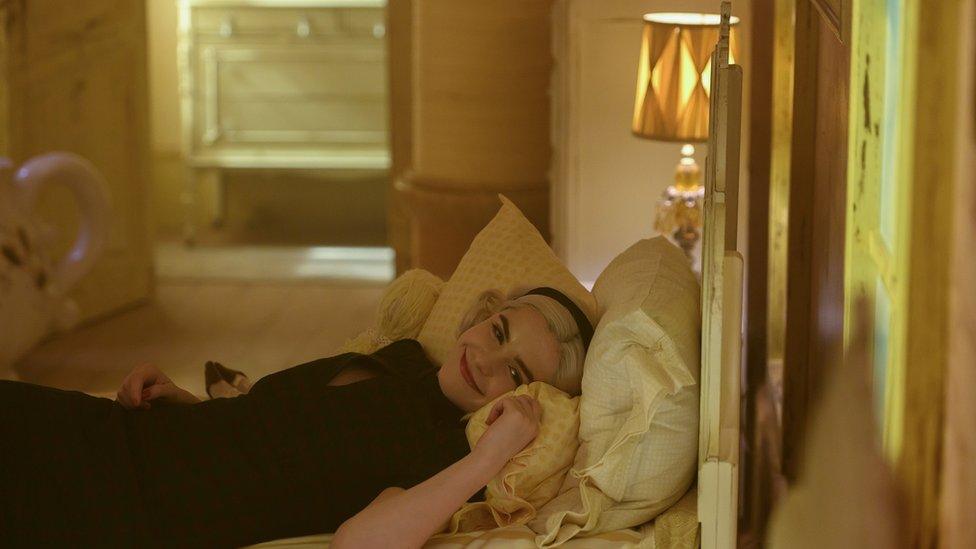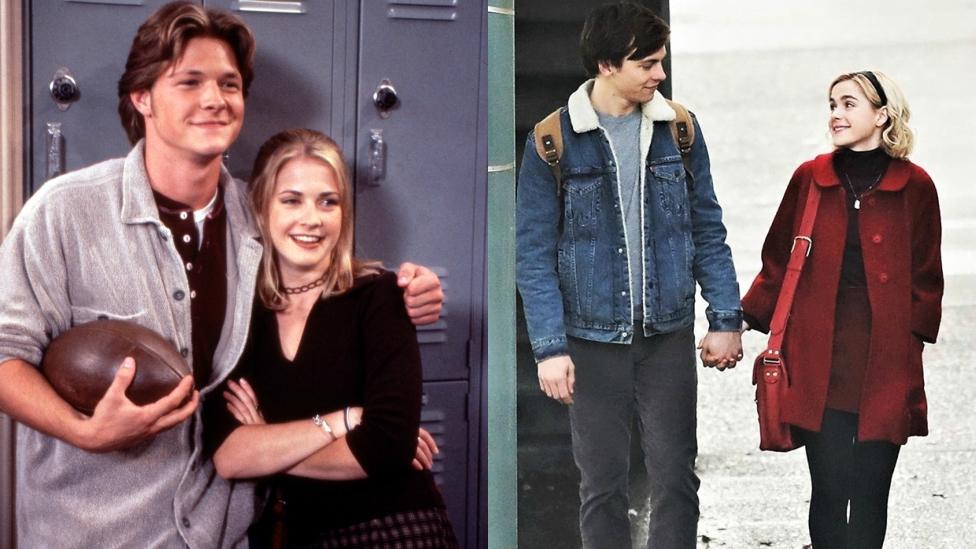Chilling Adventures of Sabrina: Netflix apologises for Bloody Sunday tweet
- Published

Kiernan Shipka plays the titular role in Chilling Adventures of Sabrina
Netflix has apologised and removed a promotional tweet for Chilling Adventures of Sabrina which referenced "Sunday Bloody Sunday".
The caption accompanied several images of cast members including star Kiernan Shipka splattered in fake blood.
But many fans replied to the tweet pointing out that offence could be taken due to the the 1972 Bloody Sunday killings in Northern Ireland.
Netflix later said "we are very sorry for the hurt and distress it caused".
In a statement the streaming service added: "Our tweet was unacceptable and has since been removed."
The caption referred to the day 13 people were killed and 15 people wounded after members of the Army's Parachute Regiment opened fire on civil rights demonstrators in the Bogside - a predominantly Catholic part of Londonderry - on Sunday 30 January 1972.
The day became known as Bloody Sunday - one of the darkest days of the Northern Ireland Troubles.
Sunday Bloody Sunday is also the name of a 1983 song by Irish rock band U2, which was written about the Troubles and taken from their third album War.

The fourth and final series of Chilling Adventures of Sabrina was released last year
After the tweet was published on the Sabrina Twitter account, several users encouraged Netflix to research the history of Bloody Sunday and remove the post.
Chilling Adventures of Sabrina examines the origin and adventures of Sabrina the Teenage Witch in a dark and supernatural coming-of-age drama.
The show's fourth and final series launched on Netflix at the end of last year.
The original Sabrina the Teenage Witch starred Melissa Joan Hart and aired from 1996 to 2003.

'Instantly recognisable phrase'
The story of Bloody Sunday has been told, and retold, many times and in many ways since 30 January 1972.
Singers, songwriters, playwrights, poets, novelists, artists and filmmakers have all created their own interpretations of what happened that day, making "Bloody Sunday" an instantly recognisable phrase.
In the 1980's, U2's "Sunday Bloody Sunday" made the Bogside familiar to a worldwide audience - and linked the 13 deaths to a global call for peace.
For artists from John Lennon and Paul McCartney to Christy Moore and the Wolfe Tones, Bloody Sunday was the catalyst for anti-Troubles songs, while playwright Brian Friel modified his 1972 play 'Freedom of the City' - set in Derry's Guildhall - to include references to Bloody Sunday.
More recently, two 2002 films - Paul Greengrass's "Bloody Sunday" starring James Nesbitt, and "Sunday", written by Jimmy McGovern - brought the events of 30 January 1972 to cinema and TV.
Read more: Telling the story of Bloody Sunday

Follow us on Facebook, external, or on Twitter @BBCNewsEnts, external. If you have a story suggestion email entertainment.news@bbc.co.uk, external.
Related topics
- Published26 October 2018
